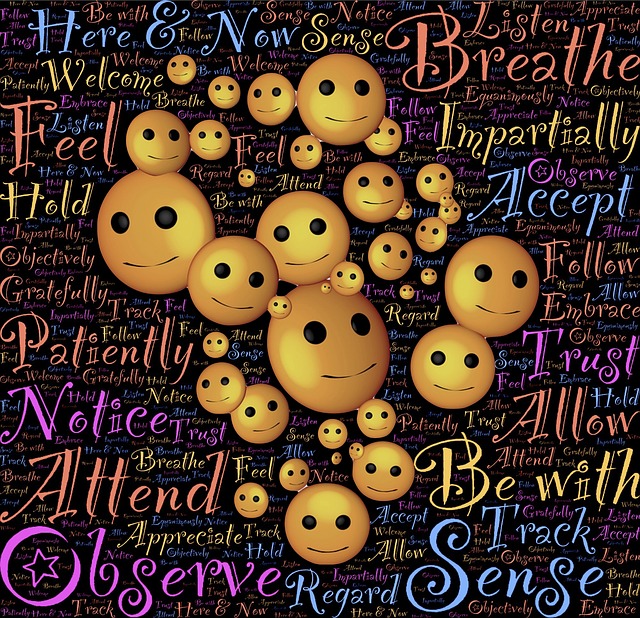As the world becomes increasingly fast-paced and demanding, it’s no surprise that many of us struggle to find moments of peace and clarity. In the midst of this chaos, meditation has emerged as a powerful tool for cultivating mindfulness and reducing stress. But what exactly is the impact of meditation on mental health? In this article, we’ll explore the concept of mindful reflection and how it can help us better understand the benefits of meditation for our minds and bodies. From improved focus and emotional regulation to reduced anxiety and depression, the evidence suggests that meditation has the potential to transform our lives in profound ways. So let’s take a closer look at the science behind this ancient practice and discover how it can help us navigate the challenges of modern life with greater ease and resilience.
1. “The Power of Mindful Reflection: How Meditation Can Transform Mental Health”
Meditation is a powerful tool that can help transform mental health. It involves the practice of mindful reflection, which is the act of intentionally focusing one’s attention on the present moment without judgment. By doing so, one can develop a greater awareness of their thoughts, emotions, and physical sensations, which can lead to a greater sense of calm and well-being.
Research has shown that meditation can have a number of benefits for mental health, including reducing symptoms of anxiety and depression, improving mood, and increasing feelings of happiness and well-being. It can also help to reduce stress and improve sleep quality. By incorporating meditation into your daily routine, you can begin to experience these benefits for yourself.
- Reduce symptoms of anxiety and depression
- Improve mood
- Increase feelings of happiness and well-being
- Reduce stress
- Improve sleep quality
It’s important to note that meditation is not a cure-all for mental health issues, and it should not be used as a substitute for professional treatment. However, it can be a valuable tool to complement other forms of treatment and to help maintain overall mental health and well-being.
2. “Exploring the Benefits of Mindful Reflection: A Journey into the World of Meditation”
Mindful reflection is a powerful tool that can help you gain a deeper understanding of yourself and the world around you. Through the practice of meditation, you can learn to quiet your mind and focus your attention on the present moment. This can help you develop greater clarity, insight, and awareness, which can lead to a more fulfilling and meaningful life.
One of the key benefits of mindful reflection is that it can help you manage stress and anxiety. When you take the time to meditate and reflect, you give yourself a chance to step back from the chaos of everyday life and find a sense of calm and peace. This can help you feel more centered and grounded, which can make it easier to cope with the challenges and pressures of modern life. Additionally, regular meditation practice has been shown to have a positive impact on physical health, including reducing blood pressure and improving immune function.
- Improved focus and concentration: By practicing mindful reflection, you can learn to focus your attention on the present moment, which can help you improve your concentration and productivity.
- Increased self-awareness: Mindful reflection can help you develop a deeper understanding of your thoughts, emotions, and behaviors, which can help you make positive changes in your life.
- Greater compassion and empathy: Through meditation, you can cultivate a sense of compassion and empathy for yourself and others, which can help you build stronger relationships and improve your overall well-being.
3. “From Chaos to Calm: The Impact of Mindful Reflection on Mental Health and Well-being
Mindful reflection is a powerful tool that can help individuals gain control over their thoughts and emotions. It involves taking time to reflect on one’s experiences, thoughts, and feelings in a non-judgmental way. This practice has been shown to have a positive impact on mental health and well-being.
When we practice mindful reflection, we become more aware of our thoughts and emotions. This awareness allows us to identify negative thought patterns and replace them with more positive ones. It also helps us to develop a greater sense of self-awareness, which can lead to increased self-esteem and confidence. Mindful reflection can also reduce stress and anxiety by helping us to stay present in the moment and not get caught up in worries about the future or regrets about the past.
- Mindful reflection can help individuals develop a more positive outlook on life.
- It can reduce stress and anxiety.
- It can increase self-awareness and self-esteem.
- It can help individuals identify negative thought patterns and replace them with more positive ones.
Overall, mindful reflection is a simple yet powerful practice that can have a profound impact on mental health and well-being. By taking just a few minutes each day to reflect on our thoughts and emotions, we can cultivate a greater sense of calm and inner peace, even in the midst of chaos.
As we conclude our exploration of the impact of meditation on mental health, it is clear that mindful reflection can have a profound effect on our well-being. By taking the time to sit with our thoughts and emotions, we can gain a deeper understanding of ourselves and our experiences. Through this process, we can cultivate greater self-awareness, compassion, and resilience, all of which are essential for maintaining good mental health. Whether you are new to meditation or a seasoned practitioner, we encourage you to continue exploring the benefits of this powerful practice. With dedication and patience, you may find that mindful reflection becomes an invaluable tool for navigating life’s challenges and cultivating a greater sense of peace and fulfillment.
